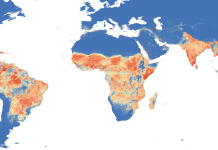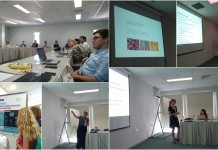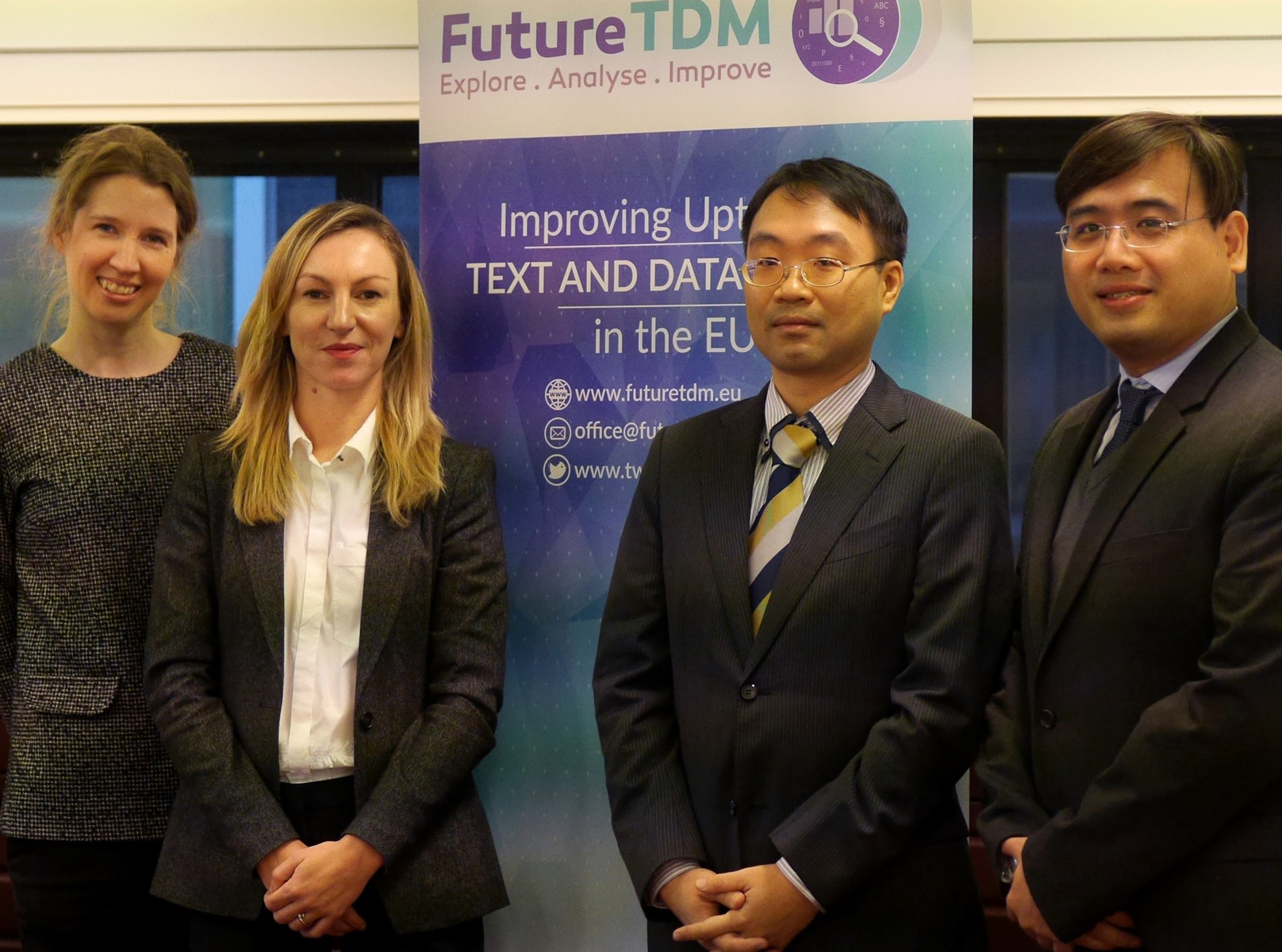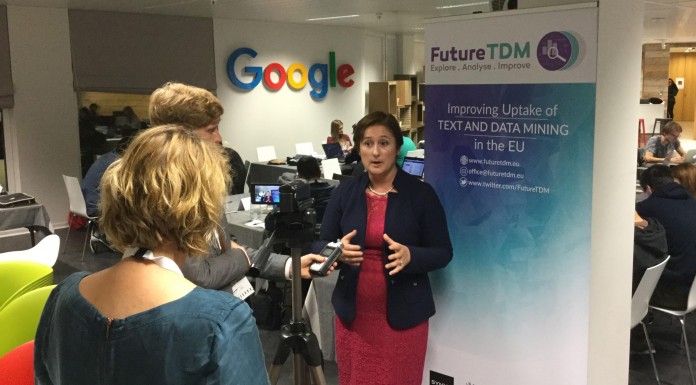FutureTDM recently met with Taiwan based NARLabs, a non-profit institute combining a number of national laboratories working on key technologies. We talked about the FutureTDM project and the issues around TDM faced in both Taiwan and the EU. In follow-up, NARLabs have written this article on open data and TDM in Taiwan.
Data mining and text mining (hereafter Text and Data Mining, TDM) are emerging domains of scientific inquiry. According to a study done by the Lisbon Council in 2014, Taiwan is one of the leading countries in Asia. Taiwan’s strength in TDM lies on the one hand in its vibrant talent pool in the field, and on the other hand in an ever-growing demand for “Open Government Data,” “Open Science” and “Open Government.” It is with this societal commitment to “openness” that Taiwan’s Science & Technology Policy Research and Information Center (STPI), which is part of the National Applied Research Laboratories (NARLabs), seeks to further understand the practice, achievements and obstacles of open data and TDM in other parts of the world, with Europe in particular.
The practices of open data in Taiwan can be seen as collaboration between the government and the civil society. On the part of the government, the Freedom of Government Information Law was adopted in 2005, stating that the free flow of information functions to “facilitate people to share and fairly utilize government information, protect people’s right to know, further people's understanding, trust and overseeing of public affairs, and encourage public participation in democracy.” With the making of other laws and regulations as well as the efforts of some local governments, the Cabinet in 2012 formally affirmed “open data” as an official policy. Today, a national system for registering the actual prices of property transactions is there for citizens to consult when considering buying or selling real estates; the National Health Insurance Administration launched a platform providing academics, industries and individuals with six categories of open insurance data for value-added applications; when encountering major social issues such as food safety, radiation from Japan’s Fukushima power plant, earthquakes and typhoons, the ministries in charge would also publish relevant information to the public, often with help from various science and technology communities.
In the eyes of the civil society, however, the release of government information had been (and for some, remains) tantamount to digitalization, meaning that while data was provided, it was neither comprehensive and systematic nor user-friendly enough. Concomitantly, several non-governmental organizations and individuals promoted ideas of “digital human rights” and “public license.” For instance, a coalition of an innovative company, design company, and social media created blogs that analyze important issues with data collected from government websites and presented in infographics in 2010. The efforts of the civil society gained momentum since around 2012, when growing social discontent with the ways in which the government handled public issues such as the use of nuclear energy, the quality of the fourth nuclear plant, and further economic integration with China stimulated huge public interests in social and political affairs. Several NGOs (e.g. g0v & OKFN Taiwan) rose to advocate not only “open data” but also “open government,” thriving for raising civil awareness as well as enhancing transparency in policy-making process. Reflecting on the importance of data, Audrey Tang, one of the core participants in g0v who was later appointed by the new government in 2016 as a Minister without portfolio, contended that data not only can be used by the private sector for value-added purposes, but also has a social dimension in that it can serve as a foundation for stakeholders of different perspectives to collaborate and social cleavage to be reduced. For this to happen, the data should be further structured to establish inter-connectedness as well as backed up when updated. She also put forth an idea of “policy resume,” in which different views are included in various stages of policy process.
With this general commitment to openness and the advance of big data, more and more TDM techniques are developed and put into practice. As is the case in other parts of the world, TDM is applied extensively to such areas as customer care service, contextual advertising, and social media data analysis by the private sector. In the public domain, TDM has been used in urban planning, production and marketing of agricultural products, learning achievement, medical and emergency care, and so on. In its “DIGI+ 2025 plan” to build a digital nation and develop an innovative economy, the government declared in late 2016 to make Taiwan an advanced country in terms of digital rights and “open online society” by 2025. Investing in talents in areas of data analysis and artificial intelligence was listed as one of the crucial means. Some research institutes are also developing their own TDM, aiming at identifying emerging S&T or social-economic issues from a huge amount of texts in order to assist in the government’s foresight planning.
The emphasis on openness has a pitfall, however. One report (in mandarin Chinese) found that while many keywords among the issues addressed in RightsCon, e.g. Internet of Things, big data, data privacy, cybercrime, net neutrality, and so on, also frequently appear in Taiwan’s public discussion, more often than not those related to risks and rights are missing on official agendas and in business circles. There seems to be a tendency where issues such as data discrimination, the violation of privacy resulting from the use of data not in accordance with the original purpose, and the risk of surveillance resulted from the misconduct of data collection draw little public attention and discussion. While this by no means suggests that privacy rights are peremptory, it does imply that perhaps the society as a whole is driven too much by actual or perceived benefits of open data-related issues. Hence it is no wonder that although Taiwan has a very strict Personal Information Protection Act that limits the application of TDM, the tension between data-mining and privacy rights has so far only be managed on a case-by-case basis. The government is not unaware of the problem, and has begun to review the legal environment to make necessary revisions. A top-down approach, however, is insufficient, and requires dialogues to bring together various stakeholders and raise public awareness.
In this regard, several research institutes in Taiwan, the STPI included, have looked to research and practices in the EU and its member states. How to strike a balance between the free flow of data and the protection of rights, and how to get public attention and participation, are issues to be addressed in the future.
Author: Jyun-yi Lee, Assistant Research Fellow, STPI - Science & Technology Policy Research and Information Center, National Applied Research Laboratories, Taiwan.
// All blog posts are the personal opinion of the bloggers. For more information see FutureTDM's DISCLAIMER on how we handle the blog. //










